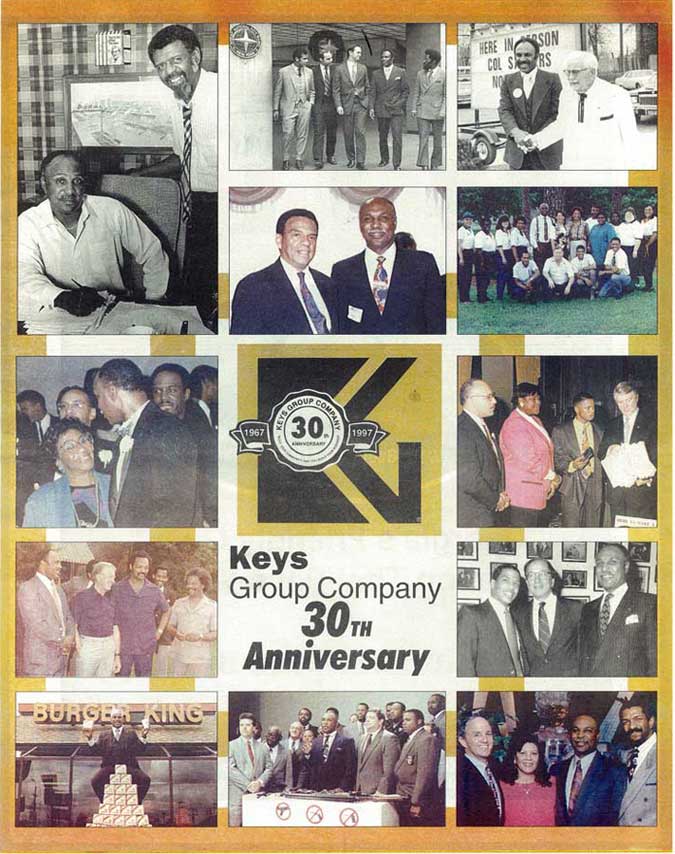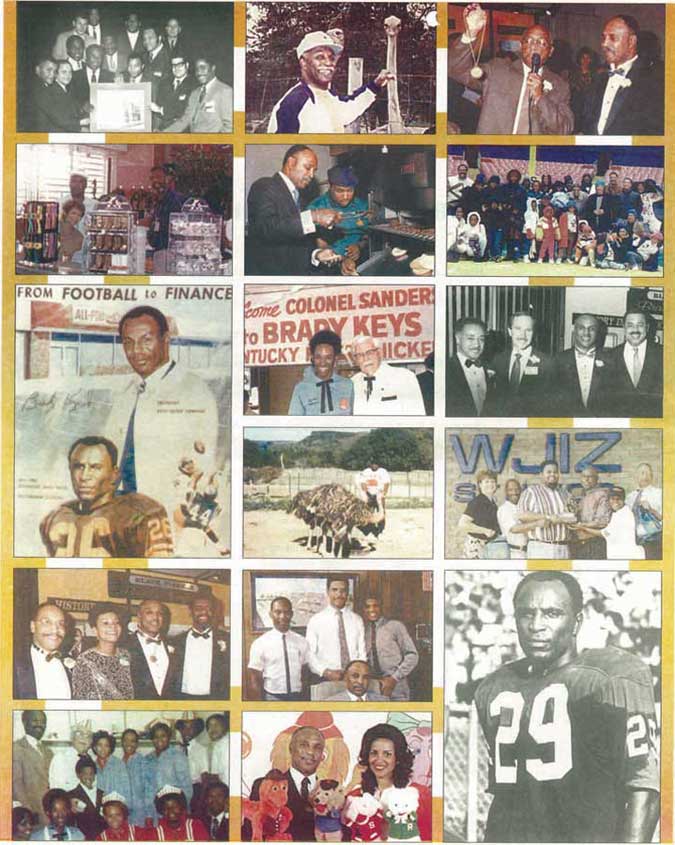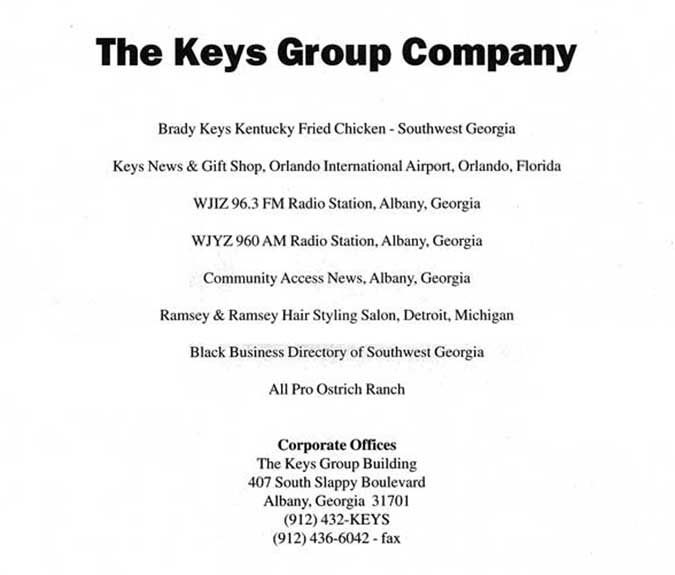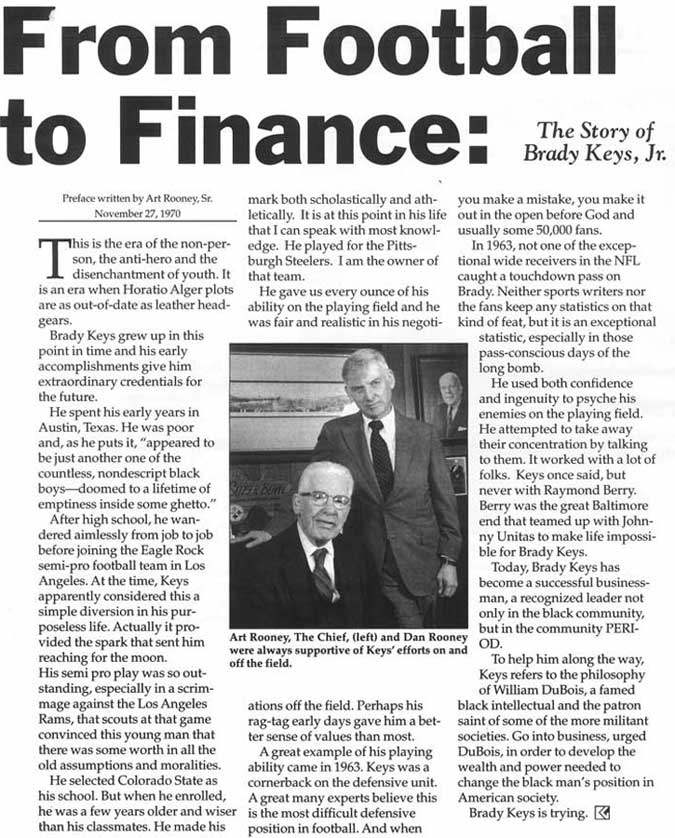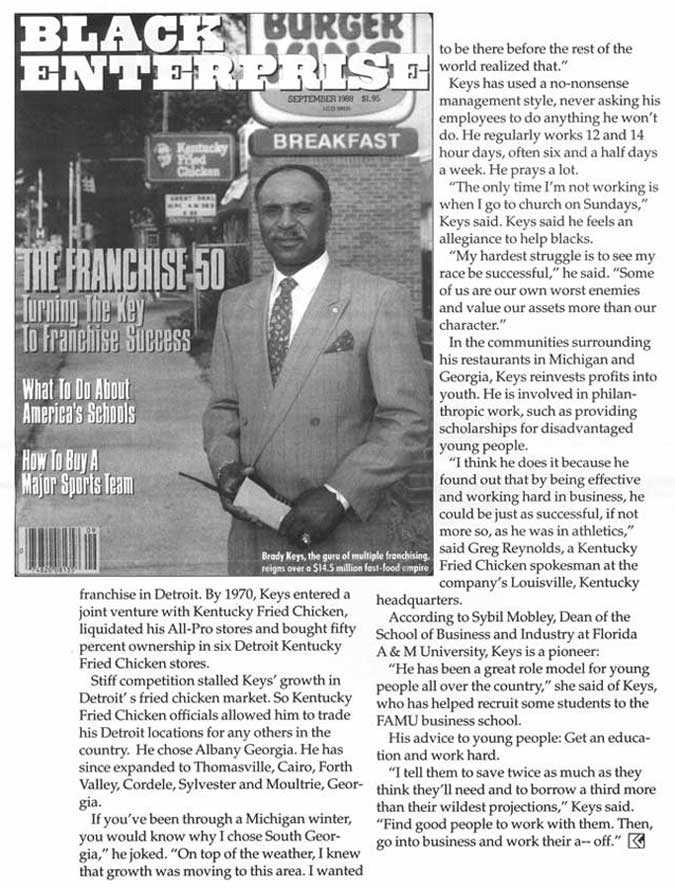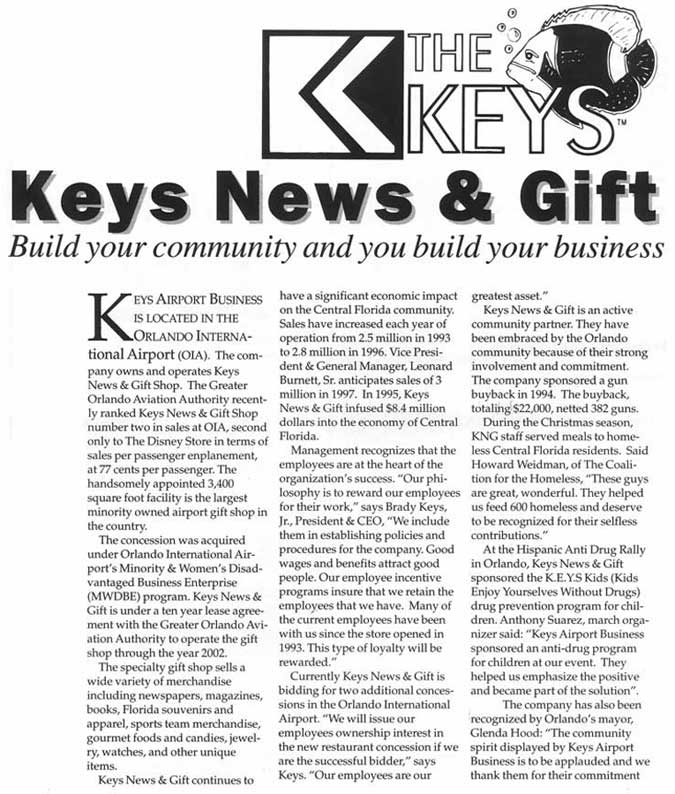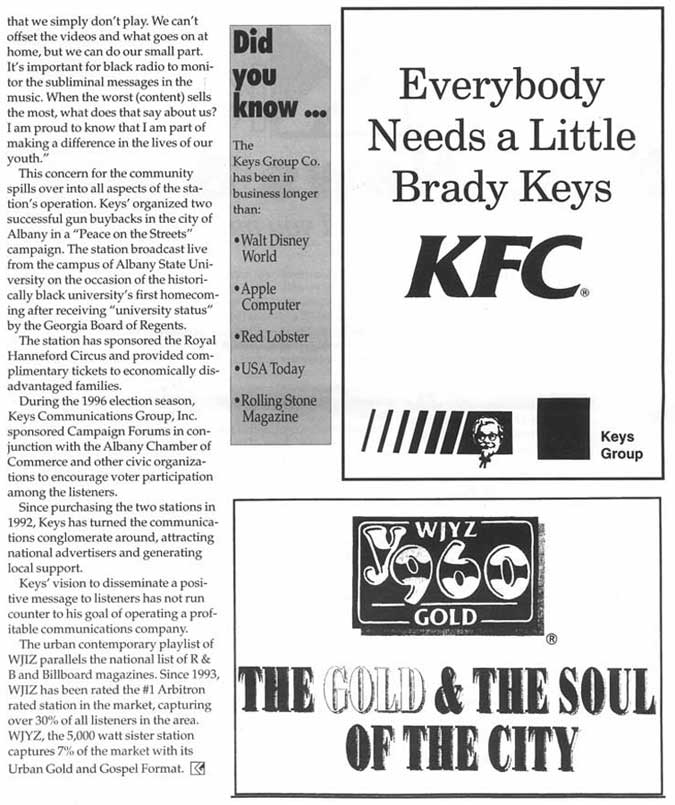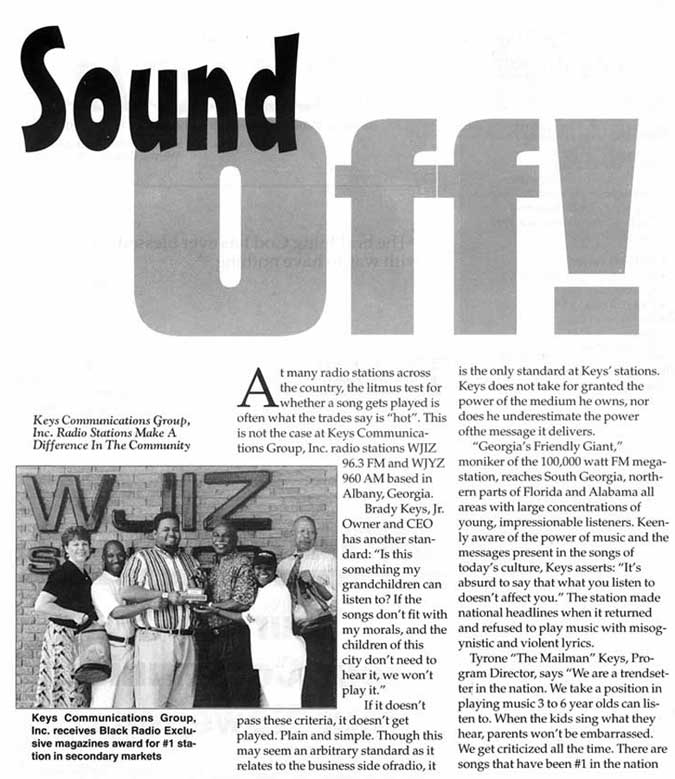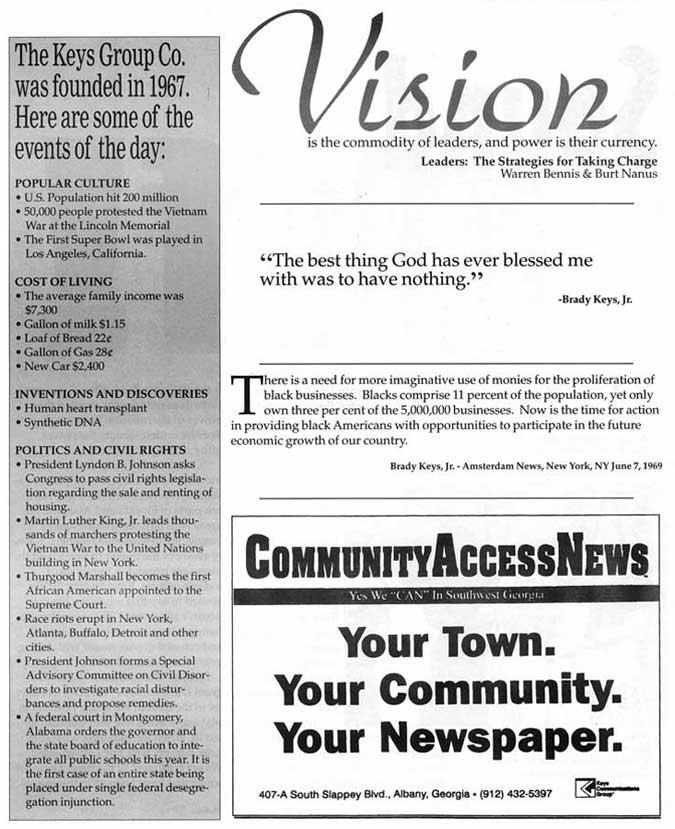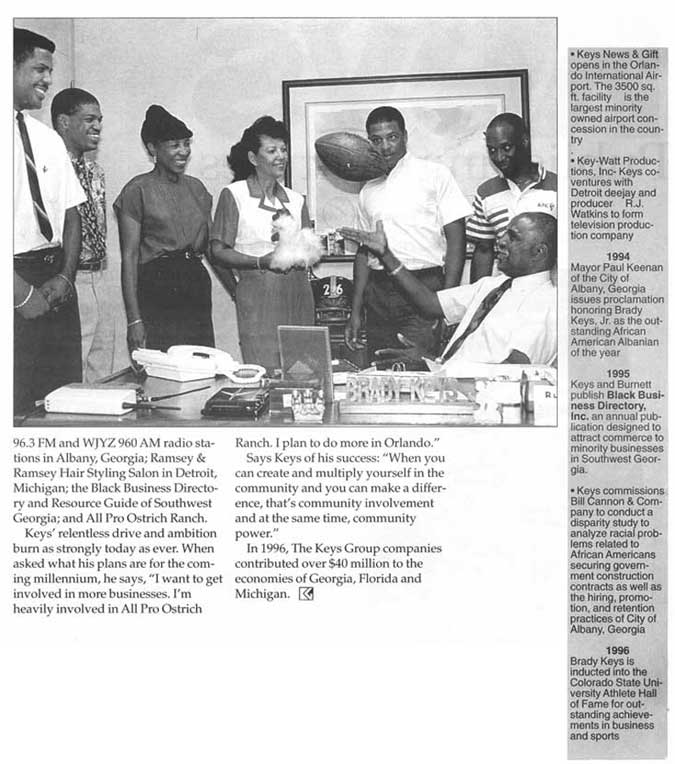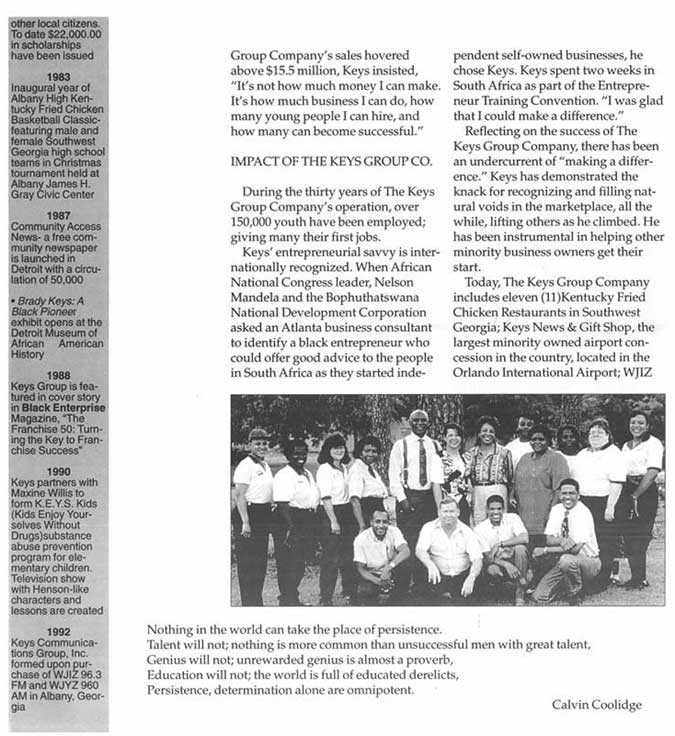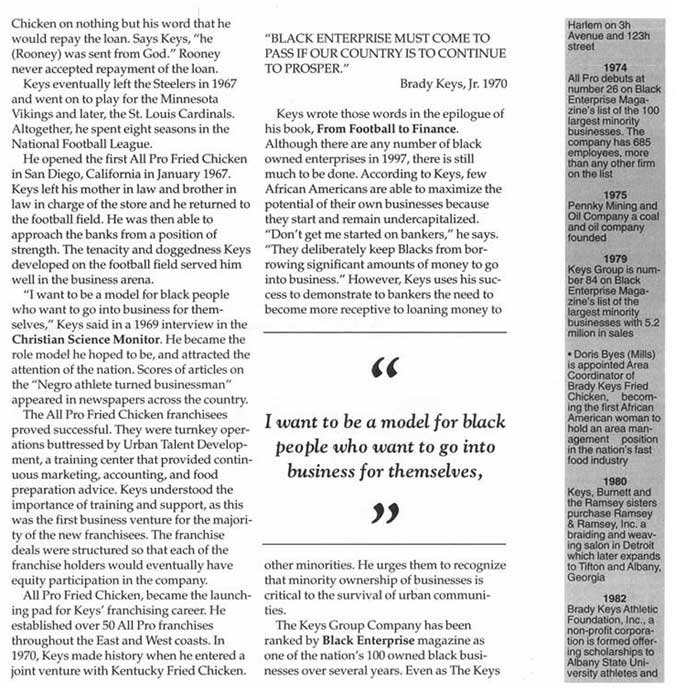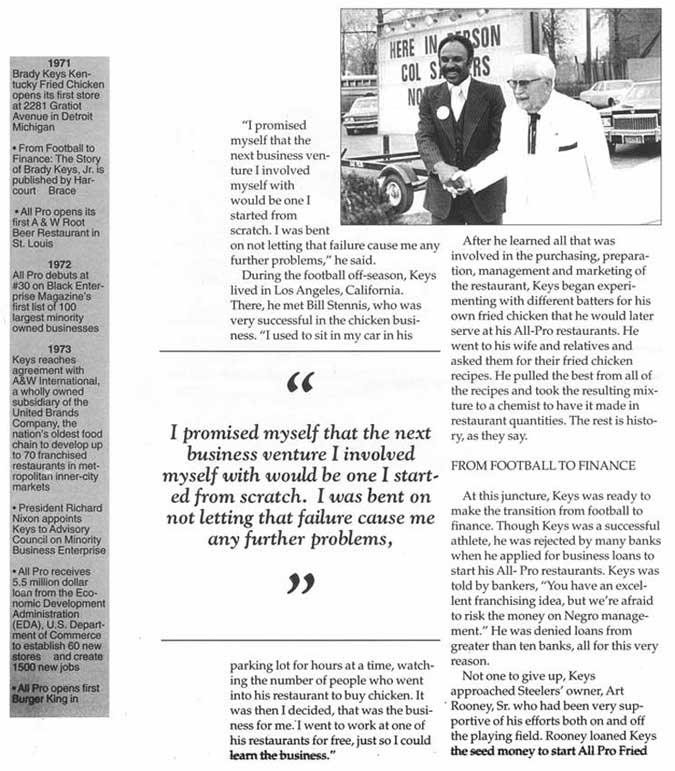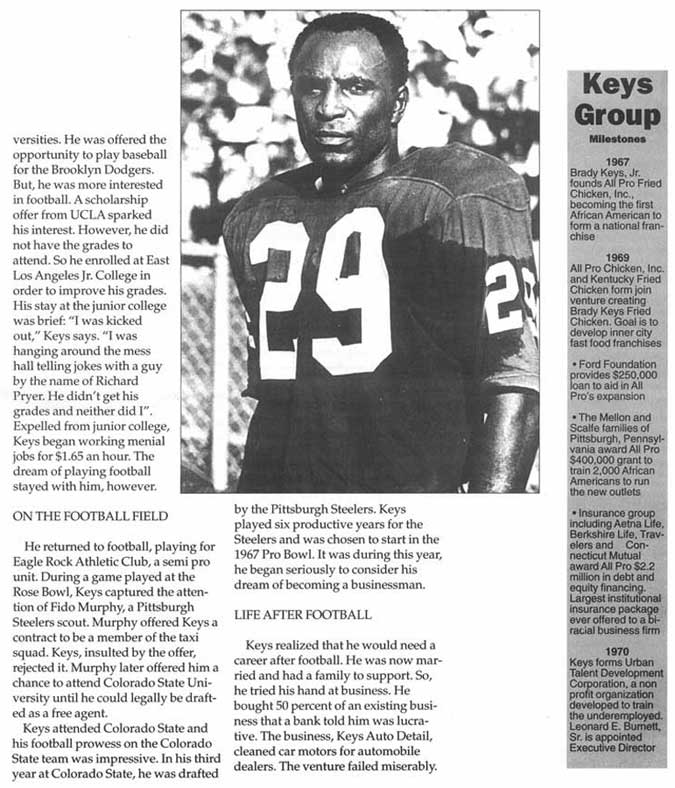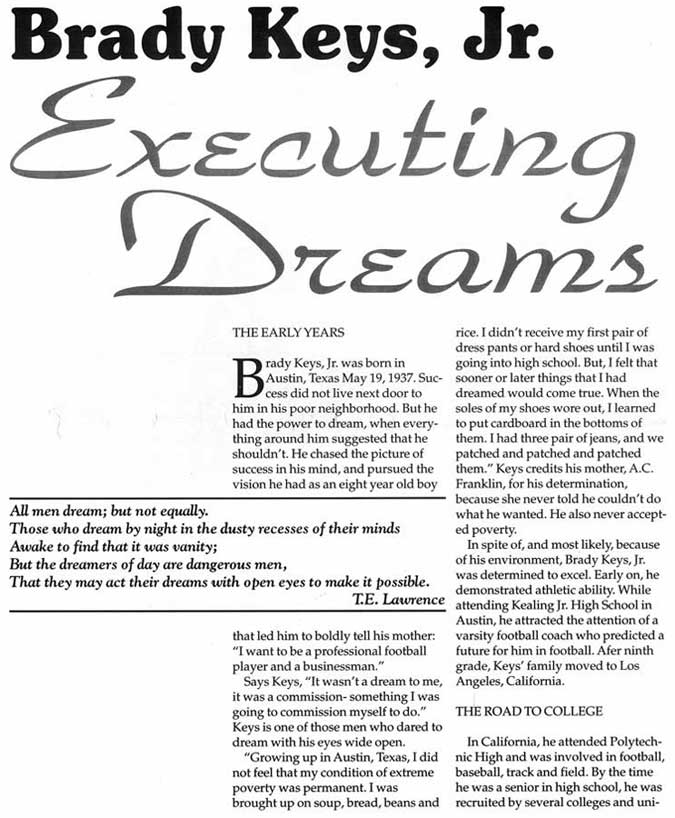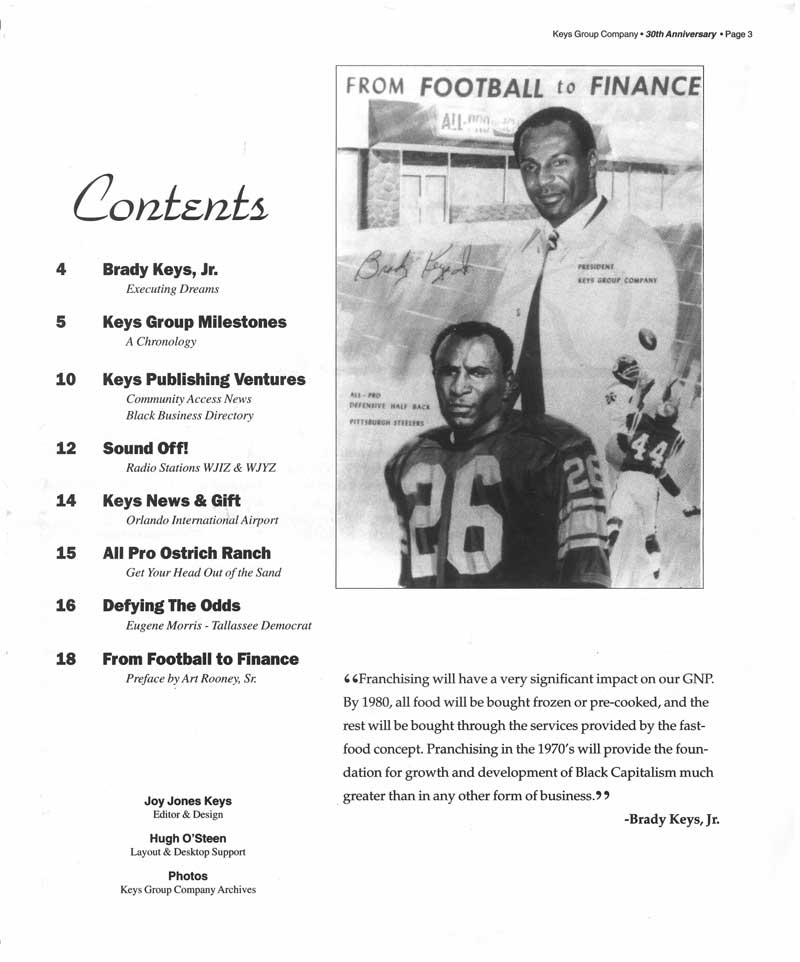The Early Years
Brady Keys, Jr. was born in Austin , Texas May 19,1937 . Success did not live next door to him in his poor neighborhood. But he had the power to dream, when everything around him suggested that he shouldn’t. He chased the picture of success in his mind, and pursued the vision he had as an eight year old boy that led him to boldly tell his mother: “I want to be a professional football player and a businessman.”
Says Keys, “It wasn’t a dream to me, it was a commission- something I was going to commission myself to do.” Keys is one of those men who dared to dream with his eyes wide open.
“Growing up in Austin , Texas , I did not feel that my condition of extreme poverty was permanent. I was brought up on soup, bread, beans and rice. I didn’t receive my first pair of dress pants or hard shoes until I was going into high school. But, I felt that sooner or later things that I had dreamed would come true. When the soles of my shoes wore out, I learned to put cardboard in the bottoms of them. I had three pair of jeans, and we patched and patched and patched them.” Keys credits his mother, A.C. Franklin, for his determination, because she never told he couldn’t do what he wanted. He also never accepted poverty.
In spite of, and most likely, because of his environment, Brady Keys, Jr. was determined to excel. Early on, he demonstrated athletic ability. While attending Kealing Jr. High School in Austin , he attracted the attention of a varsity football coach who predicted a future for him in football. After ninth grade, Keys’ family moved to Los Angeles , California .

